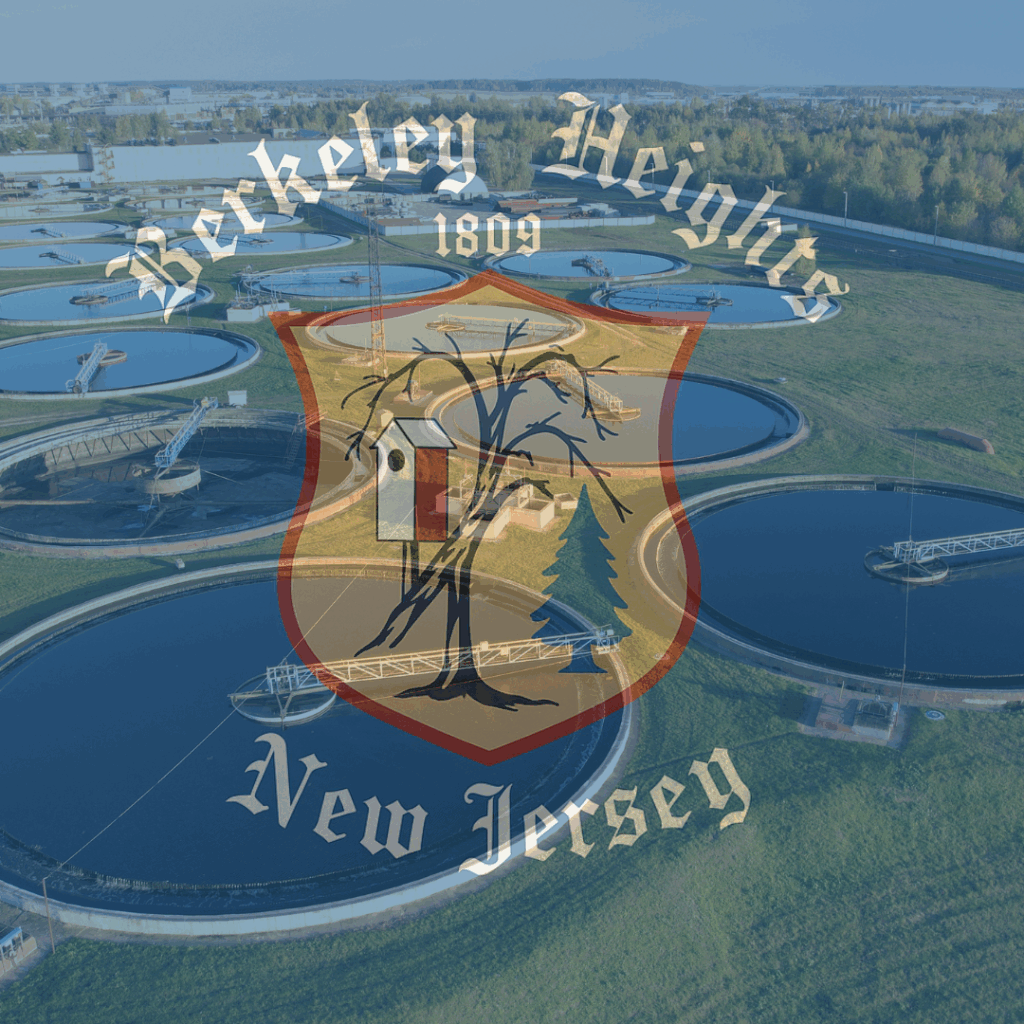Many towns across not only New Jersey, but the nation, have been selling their waste treatment plants to private companies. Berkeley Heights mayor, Angie Devanney, along with Town Council members put out an article detailing their intent to vote on moving forward to solicit bids for the sale of the town’s waste treatment plant and highlighting some of the reasoning behind the move.
If Town Council decides, on Tuesday, May 6th, to start the process, Berkeley Heights residents will vote this November on a referendum to sell the plant. It was clear from the article that our Town Council and Mayor want to sell. It’s the residents’ job to try and figure out, independently, whether that is what’s in the town’s best interest.
It is certainly true that large private companies are able to utilize economies of scale. What is also true is that most private companies are beholden, first and foremost, to their shareholders and their bottom line. This brings up something not mentioned in the article put out by our governing officials… these companies wouldn’t be buying waste treatment plants if they couldn’t make money from the purchase.
It would be worth looking into where Berkeley Heights may be able to find savings in plant operations. While the future of state and federal funds is uncertain, Berkeley Heights did receive a grant with the help of former Senator Tom Kean, Jr. in the amount of $2,000,000. Much work has been done by Berkeley Heights already. It would be good to gain a better understanding and more data from the town, and NJ 21st will work toward that end.
Cranford has chosen to separate out billing for their waste treatment from the general tax paid by residents; one of the options mentioned in the Berkeley Heights article. It took a LOT of digging to try and find cost comparisons between what a township might charge, and what a private company might charge. In fact, it’s just about impossible. New Jersey Water Check took on a project to assess the affordability of drinking water and sewer utility costs in 2021. They reported the following:
“Roughly 90 percent of New Jersey households are served by drinking water and sewer utilities. Unlike household income and expenditure information, there is no centralized database that routinely collects rate schedules for all drinking water and sewer utilities in New Jersey. Nor is there a standard format for rate schedules that simplifies the comparison of rates and costs. Rate schedules may or may not be available to the public using online resources. For this reason, compiling and interpreting rate schedules was the most complicated and time consuming portion of the project. One recommendation resulting from this project is that state guidance be developed on methods to improve the clarity of rate schedules, and that a statewide information site be developed where utilities would upload their rate schedules.”
The NJ Water Check study determined average water usage of 14,600 gallons per person, per year, and the average NJ household size as 2.83 – rounded to 3. This gives an average usage of approximately 45,000 gallons per year. Since the standard measure of sewage use is water consumption, that translates to a basis for sewer charges. Long Hill Township, prior to their sale to New Jersey American Water, had reached a cost to residents of $20.46 per thousand gallons, or an average of $920.70 (using the average above).
Cranford charges based on tiers. Usage up to 25,000 gallons per year cost the resident $210 as reported on March 25th of this year. Usage between 25,001 and 75,000 – the average for NJ households – gets billed at $210 per year plus an additional $0.0022 per gallon above 25,000. This would put the average household at $254 per year.
In June of 2024, New Jersey American Water took over ownership and operation of the waste treatment plant in Salem, NJ. I found their data for Salem. New Jersey American Water also has a fixed charge. For most towns, this is based on your water meter, with meter sizes ranging from ⅝” to 2”, with the rate increasing dramatically as meter size increases. For example, ⅝” at the low end is $30.87 per month, while a 2” meter is billed at $429.22 per month. It’s not clear from their document what the average household meter size is, but PEX water supply tubing is generally ¾”, so I’ve used that measurement to calculate charges. At that size, NJ American Water allows 5,000 gallons per month (60,000 gallons per year) at $61.41 per month, before additional charges kick in. Using average household size and water usage, a resident would pay $736.92.
These sales can be a relief to towns faced with aging infrastructure and uncertainty as to how much help will be provided to the state. Townships like Long Hill, which sold to NJ American Water recently, may have rate freezes and caps in place which will protect residents for a limited time. However, after that period of time, the rates will be approved by the NJ Board of Public Utilities. With water companies spending thousands of dollars lobbying, and incurring the costs of the aging infrastructure they are purchasing, it’s a gamble that rate approvals will remain low.
I kept searching for more information, since using just a two points of data (Cranford and Long Hill) isn’t proof that Berkeley Heights residents would be paying a similar or lesser amount compared to NJ American Water. While I was unable to find information from other towns that billed residents for sewer services, I did find that research published in 2022 in the journal ‘Water Policy’, on water supply, found that “private ownership was the most significant variable in driving up utility bills – even more than aging infrastructure, water supply and local regulations.”
As for sewer rates, since New Garden Township, in Pennsylvania, sold their waste treatment plant in 2020, the community has seen increases approaching 100%. From Chester County Press:
“I had 9,000 gallons indicated on my bill, and they billed me $343,” said Geoff Mayer. “Under the old rate, the way it was calculated in the past, that bill would have been $173, so I have effectively had an increase of 98 percent. These rate increases are going to pay for Aqua’s recovery of the $29.5 million they paid to the township for the sewer system.
“It’s going to go to pay for its profits including shareholder distributions, and it’s going to pay for their executive compensation packages, which I am sure are quite good.
“The utilities come into those municipalities and offer a big candy jar, and they all sit across the negotiating table, both of them wanting to get the number to go higher. The people that pay are the people in this room, and they were not at the table.”
NJ 21st will continue to delve into the issue so that we can help provide research and information that can help residents make an informed decision. Articles and submissions from other townships’ residents are welcome.
Editorial Disclosure: The author’s spouse works at the Berkeley Heights Sewer Plant. He had no role in the writing, research, or review of this article. The views expressed here are the author’s alone and based entirely on independent reporting and public sources.
References:
Read More on Berkeley Heights Town Council
Subscribe to NJ21st For Free
Our Commitment to Ethical Journalism
|



